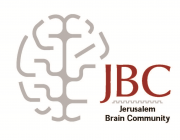
Naomi Weintraub
As the head of the 'Research and Diagnostic Lab of Writing Functions', my research focuses on the area of neuro-developmental disabilities, and specifically Learning Disabilities (mostly Dysgraphia) and co-occurring disabilities such as Attention Deficit Hyperactivity Disorder and Developmental Coordination Disorder.
Dysgraphia is the least researched area among the different forms of leaning disabilities. In Israel, the research relating to dysgraphia is scacre. Both handwriting and keyboarding are everyday activities that are extremely complex and, from a neuro-developmental perspective, are intersting and unique because they require the orchestration of linguistic, cognitive and sensory-motor abilities. Recent fMRI studies, for example, have shown that both these activities activate various areas of the brain that are related to language, orthographic perception (identifying shapes) and motor functions.
In the past 3 decades, my research focused on two major paths. The first aimed at understanding Handwriting, through behavioral studies, inlcuding the inter-relation between the underlying skills related to handwriting (e.g., sensory-motor, language and cognitive, etc.). The second, through clinical studies, focused on developing standardized, ecologically vailid handwriting assessments in Hebrew and Arabic, as the basis for studying this activity, as well as intervetion programs for children with dysgraphia. The study population in both types of studies ranged from elementary school students to students in higher education.
In the past decade, with the increasing use of computers, much of my research focused on keyboarding. As far as I know my lab is the only one in the country that studies keyboarding not only from a motor learning perspective, but also as an activity that also requires linguistic and cognitive skills. For this purpose, together with Dr. Uri Feintoch, we developed software ('Hakladaa' – 'הקלדע') that records keystrokes and enables to analyze keyboarding (speed and typing errors) in an accurate and inclusive manner. Such software is the first in the country and enables to conduct in-depth analyses of the process of keyboarding. This study is supported by the ISF, with the purpose of understanding typing errors of students typing in Hebrew (in comparison to other languages), as well as to compare the typing speed and errors of students with and without learning disabilities.
An additional area of my studies is handwriting in the Arabic language, both among children whose mother tongue is Arabic and among bilingual children. To date, research on the Arabic handwriting has not been carried out in Israel, and the research in this area, world-wide, is very limited. Studies relating to reading have shown that the complexity of the Arabic orthography creates burden on the reader and both children and students in the higher-education, whose mother tongue was Arabic, were slower in reading Arabic as compared to Hebrew. Based on these studies we are examining this issue in relation as compared to Hebrew. Based on these studies we are examining this issue in relation to handwriting. We have extended this study to examine the neuro-developmental aspects Arabic handwriting, including linguistic, cognitive and motor skills underlying the Arabic handwriting abilities.

